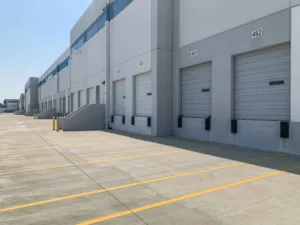Have you been feeling seasick from the ups and downs of the stock market lately? Economic storms can make any investor feel queasy, as traditional investments get tossed around and returns are unpredictable. But there’s a safe harbor for your money even when the seas get choppy: self storage investing. Self storage units have unique characteristics that help them weather economic downturns. They tend to be recession-resistant, with steady demand and stable cash flows. While other assets sink, self storage values and returns have historically stayed afloat. In this post, you’ll discover why self storage can be a stabilizing force in your investment portfolio and how to navigate the self storage market to maximize returns during uncertain times. Anchors aweigh – it’s time to explore the sheltered cove of self storage investing!
Self Storage Is Recession Resilient
Self storage units are one of the few investments that actually benefit during economic downturns. Here are a few reasons why self storage units are profitable during economic uncertainty, and tend to be recession-resistant:
- People downsize during recessions, and they need somewhere to store their excess belongings. When families downsize homes or people lose their jobs, self storage provides an affordable solution.
- Displacement drives demand. Foreclosures, evictions, and people moving for new jobs all create a need for storage.
- Life events like divorce, death, or moving for school generates demand for storage space. These life events occur regardless of the economy.
- Low operating costs mean stable cash flow. Self storage facilities have low overhead and staffing costs, so they can still generate income even when occupancy rates drop. Rental rates themselves also tend to remain stable during recessions.
- Flexible terms attract customers. Self storage units typically have month-to-month leases, making them ideal for people in transition or with uncertain housing situations. Short-term leases mean customers can vacate units quickly if their needs change.
While other real estate investments may struggle during economic downturns, self storage units remain a safe harbor for your money. Their recession-resistant nature, low costs, and flexible terms help insulate them from the worst impacts of a slowing economy. If you’re looking for an investment that can weather any financial storm, self storage may be the solution you need.
Demand for Storage Continues Regardless of the Economy
Even when the economy takes a turn for the worse, the demand for self storage units remains steady. Here are a few reasons why self storage investments are recession-resistant:
- Downsizing: When people lose their jobs or take pay cuts during a recession, they often need to downsize to smaller homes. This means they have less space for their belongings and need storage units.
- Displacement: Foreclosures and evictions also increase during economic downturns, forcing people to move and put their things in storage.
- Divorce: Unfortunately, divorce rates climb when financial stress rises. People going through a divorce usually need separate places to store their belongings during this difficult transition.
- Death: Morbid as it sounds, the number of deaths does not decrease during a recession. When people pass away, their heirs often rent storage units to handle their estates.
Self storage provides a safe place for people to keep their cherished items when circumstances beyond their control force changes in their living situations. The demand for extra space remains steady regardless of what’s happening in the economy.
While other real estate investments may struggle in a recession, self storage properties tend to hold their value well and even continue to generate returns. Their stable cash flow and low maintenance costs make self storage an attractive investment, especially in uncertain times. If you’re looking for a recession-proof way to invest in real estate, self storage could be the perfect solution.
Low Operating Costs Help the Bottom Line
Low operating costs are one of the major advantages of self-storage investments. Since tenants pay for the actual storage units and you’re responsible for maintaining the facility, keeping expenses low maximizes your profit.
Low Maintenance Requirements
Self-storage facilities require little maintenance since tenants use their own locks and access their units themselves. You’re mainly responsible for:
- General upkeep like landscaping, cleaning, and repairs
- Property taxes and insurance
- Utilities like electricity for lighting and security systems
The minimal maintenance needs mean lower costs to operate the facility compared to other commercial properties.
Economies of Scale
As your facility grows in size, operating costs do not increase proportionally. For example, adding more storage units does not necessarily mean hiring more staff or greatly increasing utility usage. The stable costs plus increased revenue from more units rented results in higher profit margins.
Limited Staffing Needs
Most self-storage facilities require limited on-site staffing since tenants access their own units. Often only a single manager and assistant are needed to oversee operations, even for a large facility. This keeps labor costs low, which is a major advantage during economic downturns.
Low Tech Requirements
Self storage does not require expensive, specialized technology or equipment. Basic features like security cameras, access control systems, and unit alarms are relatively inexpensive to install and maintain. The limited technical needs keep operating costs low and minimize the risk of expensive equipment becoming outdated.
The combination of minimal maintenance, economies of scale, limited staffing, and low-tech requirements results in self storage facilities having an average operating expense ratio of around 35%. This ability to keep costs low while still generating revenue is what helps self-storage investments weather economic storms. When times get tough, self storage can provide a safe harbor for your money.
Self-Storage Offers Stability and Cash Flow
Self storage units provide stable, consistent cash flow on a monthly basis. This recession-resistant asset class generates positive cash flow even during economic downturns.
Reliable Monthly Income
Self storage facilities charge rent on a monthly basis, providing a steady stream of income. Unlike other real estate, self storage is not subject to seasonal fluctuations or long-term leases. This means your cash flow remains consistent month after month, year after year. Even when other investments may falter during recessions, self storage keeps generating rent checks.
Low Overhead and High Demand
Self storage has low operating costs since it requires minimal staffing and upkeep. At the same time, demand for storage space remains high during recessions as people downsize homes or relocate for new jobs. This combination of low costs and steady demand results in healthy profit margins and cash flow.
Recession-Resistant Customers
Self storage tenants typically pay rent on time and stay long-term. They use storage for essential needs like extra space when moving, storing business equipment, or clearing out a garage. These needs don’t disappear during economic downturns. Self storage also serves customers from a range of economic backgrounds, so your tenant base remains diversified even if certain groups are impacted more by a recession.
Appreciation and Tax Benefits
While self storage generates monthly cash flow, the facilities themselves also gain value over time through appreciation. The land and building can be sold later at a profit. Self storage also provides tax benefits like deductions for property taxes, insurance, maintenance, and depreciation to help reduce your tax burden.
In summary, self storage should weather any economic storm due to stable cash flow, low costs, steady demand, reliable tenants, and the potential for appreciation and tax benefits. By keeping overhead low and maximizing occupancy, self storage can continue generating positive monthly returns regardless of what’s happening in the broader economy.
Strategies to Weather an Economic Storm
When the economy takes a turn for the worse, self-storage investments can provide a safe haven. Here are some strategies to help weather an economic recession:
Diversify Your Income Streams
Don’t rely on a single source of income, especially if job security is threatened during a downturn. Self storage investments generate monthly cash flow that can supplement your income from other sources. Multiple streams of income provide stability when some falter.
Focus on What You Can Control
In uncertain times, it’s easy to become pessimistic. But concentrate on factors within your influence. For self storage investors, that means managing your properties efficiently, keeping units rented, and expenses low. Don’t dwell on external factors like falling stock prices or consumer confidence.
Maintain Company Culture
It may be tempting to make deep cuts to weather a recession but don’t sacrifice your company’s values or culture. Continue providing good service and a quality experience for your tenants. Value your employees and try to avoid layoffs if possible. Your company’s culture and reputation will survive the recession intact, ready to thrive again when the economy recovers.
Diversify Your Property Portfolio
Don’t put all your eggs in one basket. A diverse self-storage portfolio with a mix of unit sizes, locations, and customer bases will ensure some properties remain resilient even if others are impacted. Newer, climate-controlled facilities in desirable areas may fare better in a downturn than older properties with basic amenities. Spreading risk across different types of self storage investments stabilizes your cash flow during economic ups and downs.
Following these strategies can help self-storage investors ride out the storms of recession. With diverse income streams, a focus on controlling what you can, maintaining your values, and a balanced property portfolio, your investments can continue providing shelter from the economic tempest.
Conclusion
So there you have it. While economic downturns can wreak havoc on many investment types, self storage units have proven to be a safe harbor for your money during choppy seas. Their stable cash flows, low costs, and recession-resistant demand allow self storage investments to weather most any financial storm. The next time dark economic clouds start gathering on the horizon, you’ll be able to rest easy knowing your self storage units are built to withstand the turbulence. With the right strategy and risk management in place, self storage can be the anchor that keeps your investment portfolio secured even when the winds of recession blow.





